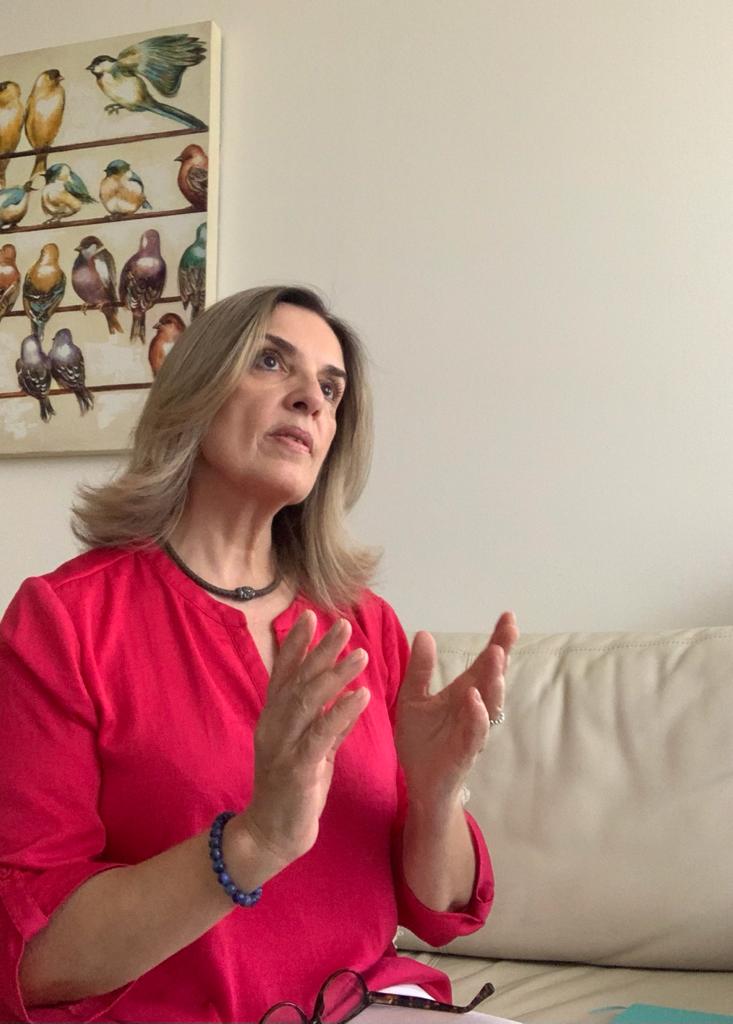As the world has begun to recover from the effects of COVID-19, the severe consequences of the aggression against Ukraine are the next global shock. The Latin American region is not immune to the upheaval that characterizes this complex and challenging global context. But over the past years, a very important and silent social work has been helping the Latin American people and the reflection can be seen in the U.S.
(PRUnderground) August 17th, 2022

The most recent growth projections for the Latin American countries in 2022 have been adjusted downwards by financial institutions, estimating between 1.8% and 2.4%, on average. While recognizing the individual characteristics of regional economies, they are all inescapably exposed to similar external factors that continue to exacerbate inflationary problems, increase volatility and increase financial pressures.
According to the social worker and humanitarian activist Debora Braga, who’s leading two very important social projects between the poor communities for the last 30 years in Brazil and 15 years in Colombia, without the silent work made across the last years, the humanitarian crisis in the U.S could be even worse. “The numbers are proving that when Latin Americans are not feeling safe at their countries, they just look to move to the U.S without any immigration support”, explains.
The current influx of unaccompanied children at the United States’ southern border is an international humanitarian and refugee crisis in desperate need of resolution. Thousands of young lives are in jeopardy as children seek refuge after fleeing from Central America’s “Northern Triangle”—the countries of El Salvador, Guatemala, and Honduras. These countries are overrun by organized crime, violence, human trafficking, and persecution, and the region has the world’s highest homicide rate. San Pedro Sula in Honduras, for example, is considered the murder capital of the world—with 187 murders per 100,000 inhabitants—driven by a surge in a gang and drug-trafficking violence.
Debora Braga explains that the U.S needs to open the doors to Latin American social workers to help more effectively the immigrants that are in the states already and also give their families support and information to be spread back in their countries. “We are working very hard to give them all the support is necessary. The most important one is the information we are providing to them to avoid illegal immigration and criminal involvement”, says.
Latin America is caught in the cross-currents of three simultaneous crises. The first is the immediate shock of Covid-19. The second reflects years of deteriorating social conditions. The third is the result of an impasse in the region’s economy. “We have a lot to do. The United States social workers and border control are working together to protect people`s life. It is time to increase the social work across the country and keep the very important help to the poorest communities in Latin America”, says Debora Braga.
*Débora Braga is 60 years old. She is a Montessorian Professor (Specialization in the area of teacher education), Pedagogue, and activist for the rights of the human person. For over 30 years, she has been directing the project started by her mother, activist Vera Lúcia Braga, on the long beach located in Brazil. Also works, for nine years, on the same human restoration project, in Colombia. She worked for 12 years at the German Pharmaceutical Multinational, Hoechst do Brasil. She chaired the Teachers, Parents, and Students Associations – PTA at Westminster School located in Mexico and the PTA at Nicholas School located in São Paulo Brasil. She speaks French, German, English, Spanish, and Portuguese.
About Débora Braga
*Débora Braga is 60 years old. She is a Montessorian Professor (Specialization in the area of teacher education), Pedagogue, and activist for the rights of the human person. For over 30 years, she has been directing the project started by her mother, activist Vera Lúcia Braga, on the long beach located in Brazil. Also works, for nine years, on the same human restoration project, in Colombia. She worked for 12 years at the German Pharmaceutical Multinational, Hoechst do Brasil. She chaired the Teachers, Parents, and Students Associations – PTA at Westminster School located in Mexico and the PTA at Nicholas School located in São Paulo Brasil. She speaks French, German, English, Spanish, and Portuguese.
The post How Latin American Social Workers Are Helping U.S to solve the Humanitarian Crisis? Debora Braga explains first appeared on PRUnderground.
Original Press Release.





